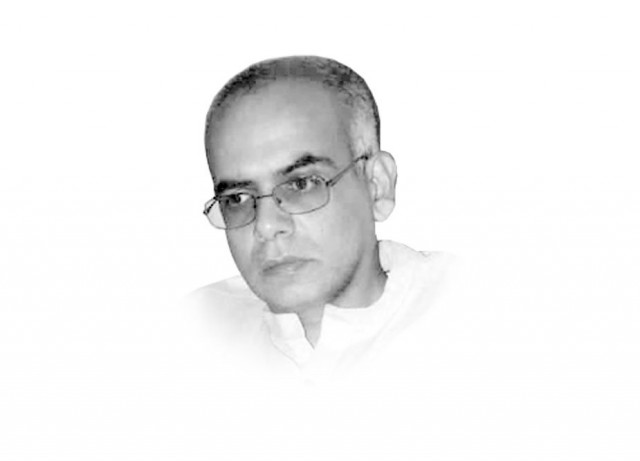How lopsided taxation regimes compound inequality
Tax avoidance is just as problematic as corruption

The writer is a development anthropologist. He can be reached at ali@policy.hu
The World Economic Forum had its annual meeting in Davos this past month, which brought together government leaders, heads of major companies and prominent civil society representatives. Everyone at this high-profile event paid lip service to the need for more stringent measures to improve the lives of ordinary people, to save the environment and stem the rising tide of populism.
Yet, it was not surprising that many of the global elites gathered at Davos avoided talking about the need for wealth redistribution, or the need to prevent tax evasion by the rich, despite the shocking Panama Papers scandal which had broken out just a couple of years ago.
One Davos panel, developed in partnership with Time magazine, did however try to draw attention to this elephant in the room. The cost of inequality panel, whose members included Jane Goodall, the famed primatologist, the executive director of Oxfam International and the prominent historian, Rutger Bregman, who is also author of the book Utopia for Realists.
Bergman aptly pointed out how low corporate tax rates are a relatively recent historical phenomenon. While tax avoidance is just as problematic as corruption, yet the ultra-rich and big business have become increasingly apt at creating tax loopholes and all sorts of excuses to avoid paying their fair share of taxes.
The economic justification for not taxing the wealthy is based on permutations of the ‘top-down’ rationale of growth, which asserts that it is people and businesses which are at the top who must be given charge of boosting economic growth which can then benefit everyone.
More recent neoliberal models of economic growth are based on a similar logic, whereby governments continue giving big breaks to rich companies and rich people to stimulate growth.
While big business and the rich do contribute to economic growth, the resulting fruits of this growth remain concentrated in the hands of the owners and the top management of big businesses.
Because governments don’t collect enough taxes from these corporations and the wealthy, there is a dearth of funds available for public health, education and social protection of ordinary people. This phenomenon is not confined to poorer countries but also powerful states like the US.
When poorer and highly indebted countries don’t collect taxes from the rich, they are under even pressure to implement regressive tax mechanisms, often at the behest of international financial institutions like the IMF. Flat rate charges such as general sales taxes place an emphasis on broadening the tax base rather than taxing those who have more wealth.
It is thus not surprising to note Oxfam’s recent assessment that 10% of the poorest people in several countries are paying higher taxes than the richest 1%. International institutions like the IMF, the World Bank and the WTO avoid the topic of redistributive policies.
Instead these powerful entities continue placing their bets on economic liberalisation as the means to make the world a better place for everyone, despite the growing inequalities that the current global economic and trade regime have produced.
Focusing singularly on economic growth or the creation of wealth cannot solve the problem of uneven distribution. Even powerful Western countries are now struggling with uneven growth which is causing other problems such as the rise of populism. In the developing world, the lack of wealth distribution causes even starker deprivations, and triggers varied socio-ethnic tensions.
Unless national governments set aside neoliberal economic prescriptions and pay more attention to how equality and redistribution can be embedded into their economic development policies, our world will remain tumultuous, polarised and highly inequitable.
Published in The Express Tribune, February 15th, 2019.
Like Opinion & Editorial on Facebook, follow @ETOpEd on Twitter to receive all updates on all our daily pieces.














COMMENTS
Comments are moderated and generally will be posted if they are on-topic and not abusive.
For more information, please see our Comments FAQ